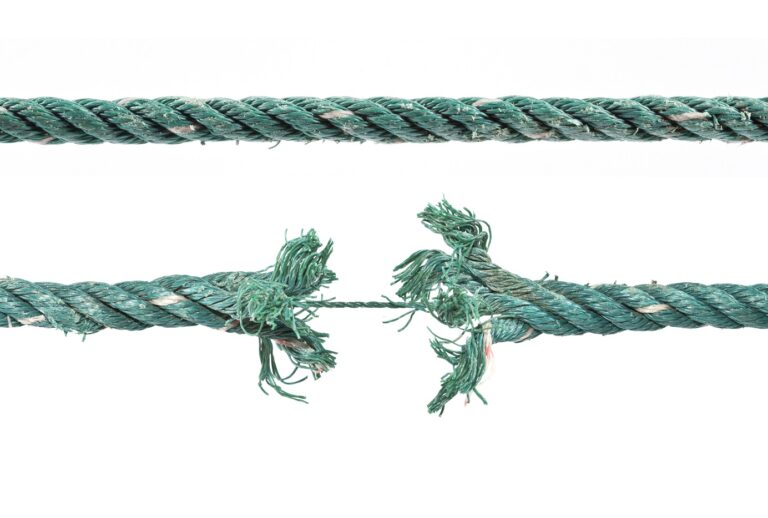Establish a Strong Customs Bond!
As new importers, online sellers are often lured into the promise of cheap and quick Customs bonds (thanks, Google); however, purchasing a regulatory service through an unknown, faceless website – or worse, a 10-minute “app” – can be risky if you haven’t done your due diligence.
Find Your Perfect Customs Bond Match!

Understanding Custom Bonds
When importing goods into the United States, Customs bonds are crucial for a smooth and compliant entry process. A Customs bond acts as the security to U.S. Customs and Border Protection (CBP) ensuring that the importer:
- Complies with all laws regulating the commodity.
- Acts as a guarantee for payment of duties, taxes, and fees.
Customs bonds are necessary for both commercial and personal shipments valued over $2,500 to safeguard the government’s interests and expedite the clearance process. Working with a reputable Customs broker is essential in securing the appropriate bond for your needs, as they possess the expertise to navigate the complexities of Customs regulations.
Imports under $2,500 are known as Informal Entries, which usually do not require a Customs bond. There are exceptions for goods over $250 that may be subject to temporary modifications or safeguard duties. Additionally, some high-risk products, are restricted from informal entry regardless of value.
Common Types of Customs Bonds
Depending on the commodity, the value of the cargo, and the potential regulatory requirements from a myriad of government agencies (USDA, DOT, EPA, and CPSC to name a few), your bond type (think price and coverage) will vary. Tariffs and Free Trade Agreements (FTAs) can also have a significant impact on bond size.
Import Customs Bond
19 CFR § 113.62
An Import Customs Bond (CBP Activity Code 1) is mandatory for businesses importing goods into the U.S. with a value exceeding $2,500. This bond ensures payment of all duties, taxes, and fees to U.S. Customs and Border Protection (CBP) and guarantees compliance with import regulations. Importers can choose between a continuous bond (valid for 12-month period) or a single entry. A continuous bond will be subject to an annual review and renewal fee.
The bond amount is typically set at 10% of the previous year’s total duties, taxes, and fees, with a minimum of $50,000 for continuous bonds (supporting up to $500,00 in duties, taxes, and fees). For example, if a business imports electronics worth $100,000 with $10,000 in duties and taxes, the bond will cover this obligation.
HOWEVER...
If any of the following issues apply, bond providers may request additional information to support bond approval:
- Antidumping and/or countervailing duties
- Past history of claims for a particular commodity
- A foreign importer of record
- Bond amount is above the minimum ($50,000)
- History of past bankruptcies
Drawback Customs Bond
19 CFR § 113.65
A Drawback Customs Bond (CBP Activity Code 1A) is essential for businesses seeking refunds on duties, taxes, and fees paid on imported goods that are subsequently exported or destroyed. It can also support erroneous payment due to an incorrect statement on the drawback claim. This bond guarantees that the exporter will comply with all U.S. Customs and Border Protection (CBP) regulations governing the drawback process, including full repayment to CBP of overpaid drawback as determined by liquidation.
Foreign Trade Zone (FTZ) Operator Bond
19 CFR § 113.73
An FTZ Bond (CBP Activity Code 4) ensures compliance with all U.S. Customs and Border Protection (CBP) regulations governing the receipt, admission, status, handling, transfer and removal of merchandise from the FTZ or Subzone. It guarantees payment of any duties, taxes, and fees that may be due if goods are removed from the FTZ improperly. The bond amount is typically determined based on the level of activity and potential duties involved, with a minimum of $50,000. For example, an operator managing good worth $1 million within an FTZ would need a bond sufficient to cover the associated risks and obligations.
Importer Security Filing
An Importer Security Filing (ISF) Bond (CBP Activity Code 16) is required for businesses importing ocean freight into the United States. This bond ensures that the importer submits accurate and timely Importer Security Filing (ISF) data to U.S. Customs and Border Protection (CBP) before the shipment’s arrival. The bond covers potential fines and penalties if the ISF requirements are not met. Typically, the bond amount is set at $10,000 per filing, guaranteeing compliance and protecting against non-compliance risks. If an importer fails to file ISF data accurately, the bond will cover any resulting penalties.
The continuous bond type is used to comply with ISF requirements.
Not sure what Customs bond you'll need?
Our helpful team of Compliance specialists will guide you to the right Customs bond for your business.
Other Types of Bonds
19 CFR § 113.63
Continuous Bond only.
A Custodian of Bonded Merchandise (CBP Activity Code 2) guarantees the payment of duties, taxes, and fees if the goods are improperly handled or released. The bond amount is typically determined based on the value of the bonded goods and the level of activity involved. For example, a warehouse storing high-value bonded merchandise would need a bond sufficient to cover the potential risks and obligations.
19 CFR § 113.64
Single or Continuous Bond.
An International Carrier Bond (CBP Activity Code 3) is required for businesses that transport goods into the United States via air, sea, or land. The bond amount is generally determined based on the volume of cargo transported and the potential risk involved.
19 CFR § 113.66
Continuous Bond only.
An Instruments of International Traffic (IIT) Bond (CBP Activity Code 3A) is essential for businesses that import containers, pallets, or other reusable instruments used in international shipping. The bond amount is typically set based on the volume and value of the instruments being imported.
19 CFR § 113.67
Continuous Bond only.
A Public Gauger Bond (CBP Activity Code 5) is required for businesses that measure, gauge, or weigh imported goods for U.S. Customs and Border Protection (CBP).
19 CFR § 113.68
Single Transaction only.
A Wool and Fur Products Bond (CBP Activity Code 6) is required for businesses that import wool and fur products into the United States.
19 CFR § 113.69
Single Transaction only.
A Bill of Lading (BOL) Bond (CBP Activity Code 7) is necessary for carriers and freight forwarders who issue their own bills of lading for goods transported into the United States.
19 CFR § 113.70
Single Transaction only.
A Detention of Copyrighted Material Bond (CBP Activity Code 8) is required for businesses involved in the importation of goods that may potentially infringe on copyrights.
19 CFR § 113.71
Single Transaction only.
A Neutrality Bond (CBP Activity Code 9) is required for shipping companies, vessel owners, or operators who wish to assure the U.S. government that their vessels will not engage in any hostile actions against nations at peace with the United States during times of war or international conflict.
19 CFR § 113.72
Single Transaction only.
A Court Costs for Condemned Goods Bond (CBP Activity Code 10) is required for importers whose goods are seized and condemned by CBP. This bond ensures the payment of court costs and other legal expenses incurred during the condemnation process.
Term Bond only.
An Airport Customs Bond (CBP Activity Code 11) is essential for businesses that operate within an airport and handle international cargo. The bond amount is typically determined based on the volume and value of the goods being processed through the airport.
Single Transaction only.
An ITC Exclusion Bond (CBP Activity Code 12) is required for importers whose goods are subject to exclusion orders issued by the U.S. International Trade Commission (ITC). This bond ensures that the importer complies with the terms of the exclusion order and guarantees payment of any damages, costs, or penalties that may arise from the importation of goods that violate the order.
19 CFR § 113
Continuous Bond only.
An In-Bond Export Bond (CBP Activity Code 14) is required for businesses that transport goods through the United States for export without entering U.S. commerce. This bond ensures compliance with CBP regulations regarding the in-bond movement of goods and guarantees the payment of duties, taxes, and penalties if the goods do not reach their final destination or are diverted into U.S. commerce illegally.
19 CFR § 113.1
Single or Continuous Bond.
An Intellectual Property Rights (IPR) Bond (CBP Activity Code 15) is required for businesses that import goods which may be subject to intellectual property rights enforcement actions by CBP.
Continuous Bond only.
A Marine Terminal Operator Bond (CBP Activity Code 17) is required for businesses that operate marine terminals and handle the loading, unloading, storage, and transfer of cargo at U.S. ports.
The Name is Bonds, Customs Bonds
Check out our blog to learn more about how U.S. Customs and Border Protection (CBP) and Partner Government Agencies (PGA) use Customs bonds to safeguard our national trade interests.


